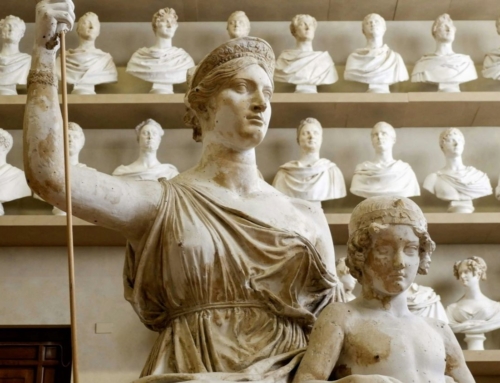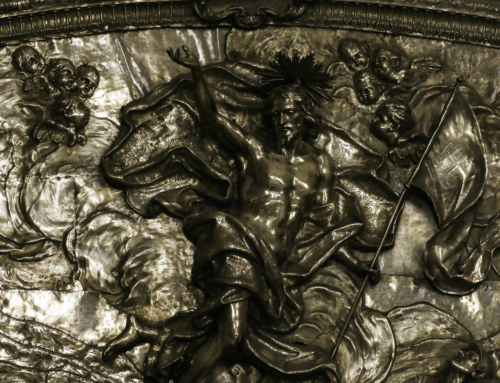“The ends don’t justify the means.”
We are all familiar with this saying. We cannot use evil means just because the end or goal that we are aiming at is good. The end of a little peace and quiet does not justify locking my brother outside in the cold. No matter how good the ultimate goal that we intend, this doesn’t permit us to do something that is wrong in order to accomplish it.
But what if the means is actually good or neutral? Upon further consideration we might say that not every good end justifies good means—they may not be proportionate. When we see desirable ends and begin to consider the means by which we may attain these ends, we enter into an internal process of what economists call a cost-benefit analysis. We want to be sure that the “cost” involved in whatever means we select is proportionate to the good of the end we stand to gain.
Unfortunately, sometimes this cost-benefit analysis is faulty. Saint Thomas Aquinas teaches that the way in which we are able to turn away from a very great good is by focusing on some aspect under which it is not perfectly good in relation to us. For example, I could think about becoming healthy (a very good end) and desire it for myself. But I could also consider that it will be hard work, and if I focus too much on how difficult it will be, I may choose not to take the steps necessary to become healthy. In a society that emphasizes immediate gratification, it can be especially easy to think that goods for which I have to wait are simply not worth the effort.
This is bad enough when applied to goods like health. But the same problem can come into play when we think about our greatest good—God himself. Saint Augustine explains that only God is to be enjoyed entirely for his own sake. Everything else is to be used as a means to the end of enjoying him perfectly. This does not mean that we can’t enjoy the good things that he has created. But we need to enjoy them specifically as means to the end of attaining God. In his de Doctrina Christiana, Augustine says that we are like travelers returning to their homeland where alone we can be truly happy. The trip may be pleasant in itself, but we must not become distracted or else we will never arrive at our destination of true happiness.
When it comes to God as our end, the cost-benefit analysis becomes very simple. There is no means that is too arduous, no sacrifice too great. It is still important to select suitable means. We cannot just leap across the sea. But, if we should find ourselves drawn to the apparent pleasures on the opposite shore, we can leap into the boat. We may look a little silly and have to leave some baggage behind, but at least we’ll have made a definitive step on our way.
The Christian life as we well know can be quite challenging. In those moments when the work of attaining virtue seems too arduous, we would do well to remind ourselves that the goal of our labors is nothing less than eternal enjoyment of God himself. We can also remember that this same God will come to our aid because he did not consider any means too great for the end of our salvation. For he sent his only begotten Son to take on our flesh and die to set us free. As Saint Paul says in Rom 8:32, “He who did not spare his own Son but handed him over for us all, how will he not give us everything else along with him?” Therefore we can trust that God will continue to help us on our way.
✠
Photo by Bobby Burch on Unsplash







